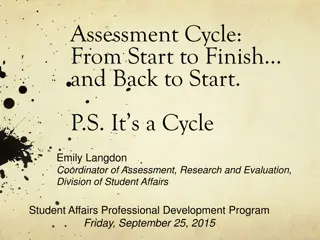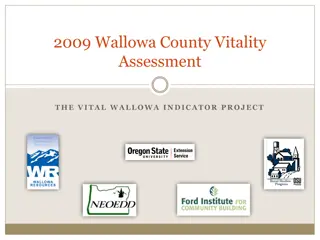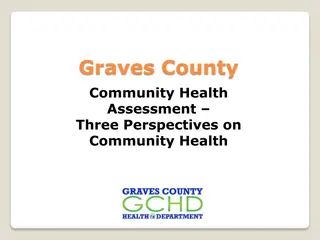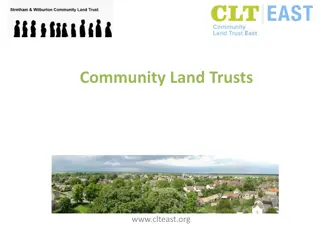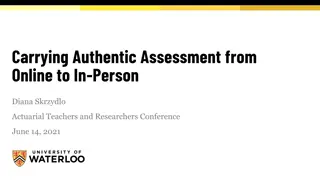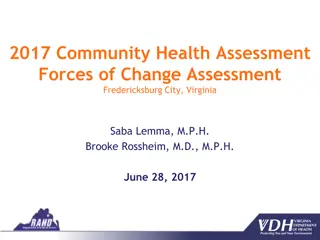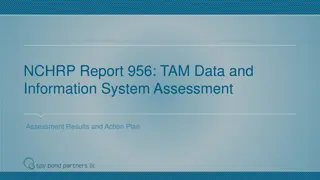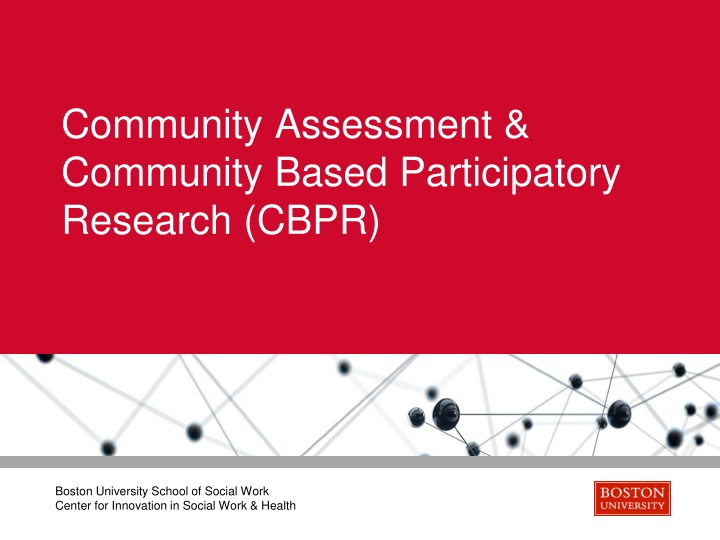
Community Assessment & CBPR at Boston University School of Social Work
Explore Community-Based Participatory Research (CBPR) at Boston University School of Social Work, focusing on objectives, introduction, definition, and how CBPR differs from other research types. Learn about involving communities in research processes and promoting equity and participation.
Download Presentation

Please find below an Image/Link to download the presentation.
The content on the website is provided AS IS for your information and personal use only. It may not be sold, licensed, or shared on other websites without obtaining consent from the author. If you encounter any issues during the download, it is possible that the publisher has removed the file from their server.
You are allowed to download the files provided on this website for personal or commercial use, subject to the condition that they are used lawfully. All files are the property of their respective owners.
The content on the website is provided AS IS for your information and personal use only. It may not be sold, licensed, or shared on other websites without obtaining consent from the author.
E N D
Presentation Transcript
Community Assessment & Community Based Participatory Research (CBPR) Boston University School of Social Work Center for Innovation in Social Work & Health
Community Assessment & CBPR Objectives Boston University Slideshow Title Goes Here At the end of the unit, participants will be able to: Explain the organic relationship between principles, methods and outcomes in CBPR, using the Tree of CBPR metaphor Identify project design and implementation methods that foster an environment of equity and participation Identify how CPBR principles could be used in their work as CHWs Know how to involve the community in assessing a program/intervention s impact on clients, organizations, and community
Community Assessment & CBPR Introduction to CBPR Boston University Slideshow Title Goes Here What do you know or imagine about Community-Based Participatory Research (CBPR)?
Community Assessment & CBPR CBPR Definition Boston University Slideshow Title Goes Here Community Based Participatory Research (CBPR) is a collaborative approach to research that equitably involves all participants in the research process and recognizes the unique strengths that each brings. CBPR begins with a research topic of interest to the community with the aim of combining knowledge and action for social change to improve community health and eliminate health disparities. Definition developed and adopted by the Community Health Scholars Program based upon Israel BA, Schulz AJ, Parker E, Becker AB in "Review of Community-Based Research: Assessing Partnership Approaches to Improve Public Health", Ann. Rev. Public Health. 1998. 19:173-202. Available at: http://www.kellogghealthscholars.org/about/community.php
Community Assessment & CBPR How is CBPR similar/different from other types of Boston University Slideshow Title Goes Here research? Community participates and leads all aspects: Community is the leader Identifying the area of study & questions to be answered Designs and gathers information to address the issue Analysis and interpretation of results Expert driven: Community is a participant/subject Community may help advise or approve area of study & research questions Experts design & gather information; community members may be involved, usually in collection Analysis and interpretation of results; experts may bring to community for input Use results to inform and direct change
Community Assessment & CBPR CBPR Tree Boston University Slideshow Title Goes Here Fruit: Impacts Branches: Methods Trunk: Environment Roots: Principles
Community Assessment & CBPR CBPR Principles- Roots Boston University Slideshow Title Goes Here The roots are the principles that sustain good participatory research. Recognizes community as a unit of identity Builds on strengths and resources within the community Facilitates collaborative, equitable involvement of all partners in all phases o f the research Integrates knowledge and intervention for mutual benefit of all partners Promotes a co learning and empowering process that attends to social ineq ualities Involves a cyclical and iterative process Addresses health from both positive and ecologic perspectives Disseminates findings and knowledge gained to all partners Involves long term commitment by all partners Israel, B. A., Schulz, A. J., Parker, E. A., & Becker, A. B. (1998). Review of community-based research: assessing partnership approaches to improve public health. Annual Review of Public Health, 19(1), 173-202.
Community Assessment & CBPR CBPR Principles Boston University Slideshow Title Goes Here Think about the people that you interviewed. What do you think are their core values or priorities? Do you see their core values or priorities reflected in the goals of CHW work?
Community Assessment & CBPR Popular Education Principles Boston University Slideshow Title Goes Here Popular Education: Just, Equitable & Democratic Society Everyone is a teacher and a learner Create space to reflect on personal experience Start with what people know or do Critically examine the world around us Honor lived experience Learn the skills to work together We learn with our head, heart and bodies Take collective action Develop grassroots leadership Build trust
Community Assessment & CBPR Cultural Humility Principles Boston University Slideshow Title Goes Here
Community Assessment & CBPR CBPR Environment Boston University Slideshow Title Goes Here Think about where you conduct your work to meet people. What was the space like? Who did you invite? Who attended? Who did you invite but didn t attend? Who would you have liked to invite? Were there any challenges in setting up the meeting (i.e. transportation or childcare needs)?
Community Assessment & CBPR Key Aspects of the Environment Boston University Slideshow Title Goes Here Participants Are all voices from the community are present? If some couldn t attend, what is the plan to follow up with them? Open space for conversation Participants can see each other to promote conversation (i.e. sit in circle) Refreshments Resources (child care, transportation support)
Community Assessment & CBPR CBPR Principles- Branches Boston University Slideshow Title Goes Here Think about how you gathered information to do your work. How did you gather the information? Why did you choose that/those methods? What worked well and were there any challenges with how you collected the information? What follow up questions did you ask and why? Israel, B. A., Schulz, A. J., Parker, E. A., & Becker, A. B. (1998). Review of community-based research: assessing partnership approaches to improve public health. Annual Review of Public Health, 19(1), 173-202.
Community Assessment & CBPR CBPR Principles- Fruits: Impacts / Outcomes Boston University Slideshow Title Goes Here The fruits are the results, impacts, and outcomes of the research. Based on your interviews: What were the impacts? How did the responses compare/contrast with your views of the impacts and HRSA s goals?
Community Assessment & CBPR Boston University Slideshow Title Goes Here Next Steps and Questions?








